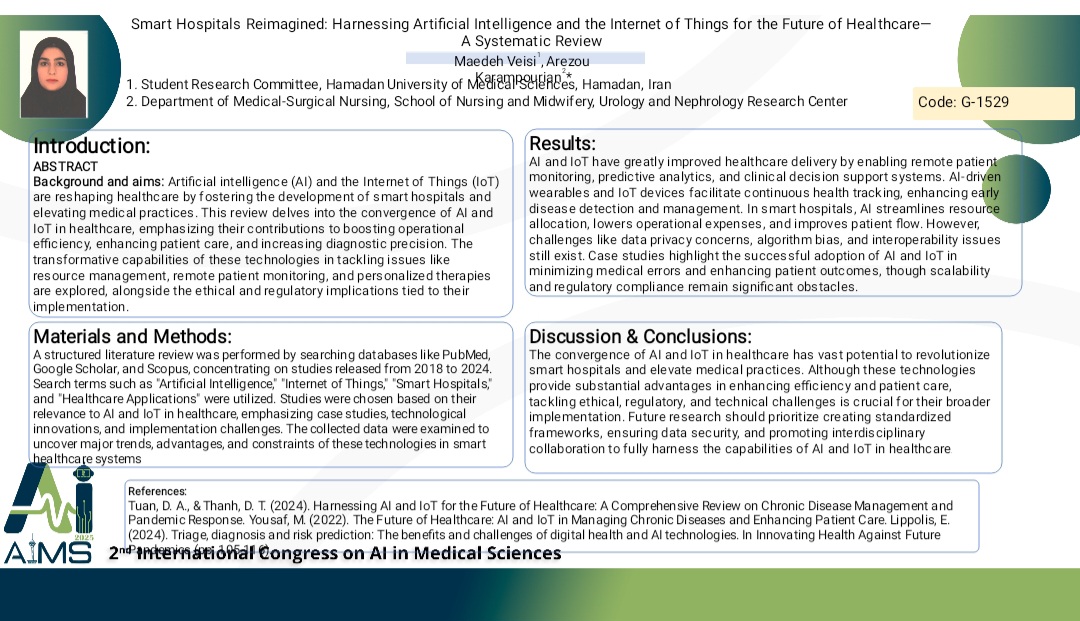Smart Hospitals Reimagined: Harnessing Artificial Intelligence and the Internet of Things for the Future of Healthcare—A Systematic Review
Code: G-1529
Authors: Maedeh Veisi ℗, Arezou Karampourian *
Schedule: Not Scheduled!
Tag: Clinical Decision Support System
Download: Download Poster
Abstract:
Abstract
Background and aims: Artificial intelligence (AI) and the Internet of Things (IoT) are reshaping healthcare by fostering the development of smart hospitals and elevating medical practices. This review delves into the convergence of AI and IoT in healthcare, emphasizing their contributions to boosting operational efficiency, enhancing patient care, and increasing diagnostic precision. The transformative capabilities of these technologies in tackling issues like resource management, remote patient monitoring, and personalized therapies are explored, alongside the ethical and regulatory implications tied to their implementation. Method: A structured literature review was performed by searching databases like PubMed, Google Scholar, and Scopus, concentrating on studies released from 2018 to 2024. Search terms such as "Artificial Intelligence," "Internet of Things," "Smart Hospitals," and "Healthcare Applications" were utilized. Studies were chosen based on their relevance to AI and IoT in healthcare, emphasizing case studies, technological innovations, and implementation challenges. The collected data were examined to uncover major trends, advantages, and constraints of these technologies in smart healthcare systems Results: AI and IoT have greatly improved healthcare delivery by enabling remote patient monitoring, predictive analytics, and clinical decision support systems. AI-driven wearables and IoT devices facilitate continuous health tracking, enhancing early disease detection and management. In smart hospitals, AI streamlines resource allocation, lowers operational expenses, and improves patient flow. However, challenges like data privacy concerns, algorithm bias, and interoperability issues still exist. Case studies highlight the successful adoption of AI and IoT in minimizing medical errors and enhancing patient outcomes, though scalability and regulatory compliance remain significant obstacles. Conclusion: The convergence of AI and IoT in healthcare has vast potential to revolutionize smart hospitals and elevate medical practices. Although these technologies provide substantial advantages in enhancing efficiency and patient care, tackling ethical, regulatory, and technical challenges is crucial for their broader implementation. Future research should prioritize creating standardized frameworks, ensuring data security, and promoting interdisciplinary collaboration to fully harness the capabilities of AI and IoT in healthcare.
Keywords
Artificial Intelligence, Smart Hospitals, Healthcare Applications
